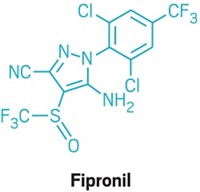Advertisement
Grab your lab coat. Let's get started
Welcome!
Welcome!
Create an account below to get 6 C&EN articles per month, receive newsletters and more - all free.
It seems this is your first time logging in online. Please enter the following information to continue.
As an ACS member you automatically get access to this site. All we need is few more details to create your reading experience.
Not you? Sign in with a different account.
Not you? Sign in with a different account.
ERROR 1
ERROR 1
ERROR 2
ERROR 2
ERROR 2
ERROR 2
ERROR 2
Password and Confirm password must match.
If you have an ACS member number, please enter it here so we can link this account to your membership. (optional)
ERROR 2
ACS values your privacy. By submitting your information, you are gaining access to C&EN and subscribing to our weekly newsletter. We use the information you provide to make your reading experience better, and we will never sell your data to third party members.
Environment
Plague-Carrying Fleas In Madagascar Developing Resistance To Several Insecticides
Disease Control: Scientists find fleas are unscathed by six of 12 commonly used insecticides, and only one insecticide is effective on all of the country’s fleas
by Bethany Halford
February 8, 2016
| A version of this story appeared in
Volume 94, Issue 6
Despite decades of work trying to control plague, the illness is still a major health concern in Madagascar. A 2014 outbreak in that country infected more than 335 people at its peak and claimed at least 79 lives, according to the World Health Organization. Plague is primarily transmitted to people from rats via the Oriental rat flea Xenopsylla cheopis. Efforts to keep the disease in check focus on controlling the flea population with insecticides. But a study by Adélaïde Miarinjara and Sébastien Boyer, of the Pasteur Institute of Madagascar, reveals that of 12 standard insecticides, six—including the most commonly used insecticide deltamethrin—are ineffective against local fleas (PLOS Neglected Trop. Dis. 2016, DOI: 10.1371/journal.pntd.0004414). Miarinjara and Boyer studied eight flea populations from around the island and found that only one insecticide—dieldrin—was 100% effective on all populations. Dieldrin is an organochlorine compound that’s toxic to mammals and known to accumulate in the environment. It hasn’t been used in Madagascar since 1993. To prevent the spread of plague, Miarinjara and Boyer recommend exploring alternatives to insecticide dusting in homes, including rat control and insecticide-laced bait boxes for rats, which would reduce overall insecticide use.





Join the conversation
Contact the reporter
Submit a Letter to the Editor for publication
Engage with us on Twitter